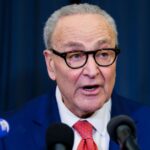
In the days since President Joe Biden announced that al-Qaida leader Ayman al-Zawahiri had been killed by a CIA drone strike in Afghanistan, much ink has been spilled about his life and his spectacular death.
Much of the debate has focused on the effectiveness, or lack thereof, of U.S. over-the-horizon counterterrorism capabilities.
Conspicuously missing from Biden’s primetime address on Monday night and from the deluge of media coverage that’s followed, however, has been any mention of al-Zawahiri’s ties to Russia.
On Thursday, The New American’s Christian Gomez reported that al-Zawahiri was trained by Russia’s Federal Security Service, better known as the FSB, which is the primary successor to the KGB.
The allegation was made by former FSB Lt. Col. Aleksandr Litvinenko in 2005 after he had defected to the U.K. You may recall that Litvinenko died in London after being poisoned with radioactive polonium in 2006. His death was a big story at the time.
Trending:
In a July 2005 interview with Poland’s Rzeczpospolita newspaper, Litvinenko said, “Ayman al-Zawahiri trained at a Federal Security Service base in Dagestan in 1998. He was then transferred to Afghanistan where he became Osama bin Laden’s deputy. I was working in that section at the time and I can confirm the fact Zawahiri was not the only link between the FSB and al-Qaida.”
The following year, Litvinenko shared “odd-tasting” tea with two Russian men, Andrey Lugavoy and Dmitri Kovtun, at a bar in London’s Millennium Hotel, and three weeks later, he was dead, according to Sky News.
A 10-year public inquiry concluded the two men at the bar had been Russian agents and “in all likelihood assassinated Mr Litvinenko with the knowledge of Russian President Vladimir Putin,” the outlet reported.
Shortly after al-Zawahiri assumed leadership of al-Qaida in June 2011, an article in The Spectator warned the West not to ignore his connection with the FSB. The report said that Litvinenko had confirmed this in not just one, but numerous interviews.
Litvinenko’s allegations were corroborated by former KGB Lt. Col. Konstantin Preobrazhensky, who defected to the U.S. in 1993 and wrote about his time as a Russian spy.
Gomez cited an article Preobrazhensky once wrote for the Centre for Counterintelligence and Security Studies in which “he detailed the Soviet Union/Russia’s ties to international Islamic terrorism, and more specifically the FSB’s role in training al-Zawahiri.”
Preobrazhensky wrote, “Long before Islamic terrorism became a global threat, the KGB had used terrorism to facilitate the victory of world Communism.”
He continued, “Litvinenko … told me that his former FSB colleagues had trained famous Al-Qaeda terrorists Ayman Al-Zawahiri and Juma Namangoniy during the 1980s and 1990s. Ayman Al-Zawahiri, one of the world’s most wanted terrorists, has been responsible for the murder of U.S. nationals outside the United States.”
“In 1996, Alexander Litvinenko was responsible for securing the secrecy of Al-Zawahiri’s arrival in Russia, who was trained by FSB instructors in Dagestan, Northern Caucasus, in 1996-1997.”
According to Gomez, Litvinenko supplied the names of many other terrorists and tyrants who had been trained by the KGB or the FSB.
The list includes “Yasser Arafat, former leader of the Palestine Liberation Organization and first president of the Palestinian National Authority; Wadie Haddad (aka Abu Hani), the leader of external operations for the Marxist-Leninist Popular Front for the Liberation of Palestine; former Iraqi dictator Saddam Hussein; former general secretary of the Lebanese Communist Party George Hawi; and Sean Garland, president of the Marxist-Leninist Workers’ Party of Ireland.”
This is fascinating stuff and yet, aside from Gomez, no one is reporting on it. That may be partially because some journalists are unaware of the ties. But, certainly, reporters who focus on Russian affairs or Islamic terrorism would have knowledge of this information.
So why has Russia’s facilitation of international terrorism been so underreported?
Gomez, who obviously knows a thing or two about Russia, has some ideas. He believes that “ultimately communists always stick together to defeat their common ‘imperialist’ capitalist foe: the United States.”
“The communists in Russia did not magically disappear following the official ‘collapse’ of the Soviet Union in 1991, nor has the Kremlin deviated from its Soviet-era foreign policy of spreading world revolution, including with agents recruited from the Islamic world.
“Ayman al-Zawahiri represented a key conduit linking the Kremlin with modern international Islamic terrorism. Alexander Litvinenko’s life was taken for exposing this.”
One can only imagine what was going through then-Russian Foreign Minister Sergey Lavrov’s mind in March 2009 when then-Secretary of State Hillary Clinton presented him with a reset button.






